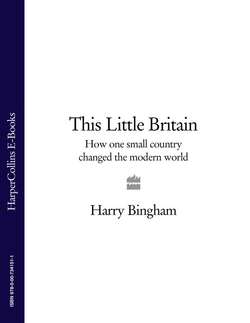Читать книгу This Little Britain: How One Small Country Changed the Modern World - Harry Bingham - Страница 8
O as in though
ОглавлениеMost oddities of English have little to do with straightforward errors. A bigger problem is that English is a living language, and its strangest spellings are often left as residues, like tree rings marking out past phases of growth.
English spellings largely derive from a particular period in British history, the fourteenth and fifteenth centuries. It’s possible to be as precise as this for the simple reason that for the three hundred years or so following the Norman Conquest English had mostly disappeared as a written language. When official documents needed to be written, they’d been written in French or Latin. Thus by the time that English began to re-emerge from its long hiding, it was faced with the challenge of adopting a writing system almost, as it were, from scratch.
This could easily have been a recipe for disaster. People tended to spell as they pronounced, and regional accents of the time were very varied. There are more than five hundred spellings recorded for the word through. The word she had more than sixty, including:
Scae Sse Sche Shae Se Che Shee Zhee Sheea Sheh Shey Sha Sso Sco Scho Schoe Show Sho Shoy Schew Schw Shoe Shou She Su Scheo Sheo Zhe
If you were writing just for your own friends, or to conduct business locally, perhaps none of this might have mattered. But as soon as official records and legal proceedings began using English too, then this kind of variation began to matter a lot; a common approach was called for. Naturally enough, London, home to the court and the senior echelons of the national bureaucracy, became dominant in imposing its spellings, in particular through the most senior bureaucrats of them all, the Masters of Chancery. Over time, they began to stamp their authority on the chaos. Out went all those scheos and sheeas and zhes, to be replaced by she. Out went ich (and many others) to be replaced by I. Because the movers and shakers of London spoke an English drawn mostly from London and the Midlands, our spelling is based largely on those accents.
Those early bureaucrats did a good job. Fifteenth-century English spelling was increasingly systematic and rational—a typical European language. Alas, however, no sooner had the spellings been fixed than pronunciations shifted. The spelling of words like through, rough and right is a perfectly accurate guide to the way these words used to be spoken. But the language has moved on, leaving these old medieval relics behind.
